Living in Sardinia means a unique blend of lifestyles: island life with a heavy dose of Italian traditions and culture.
It is home to beautiful beaches, mountains and forests, small villages and larger cities, delicious local food and wine.
Sardinia has something for everyone!
As a designated ‘Blue Zone’, Sardinia is home to one of the highest rates of people over the age of 100.
In fact, the island itself is the oldest landmass in Europe, so it’s no stranger to preservation and longevity.
Is it something in the water? Maybe, the food? Or, maybe, because Sardinia’s climate is actually pretty close to what is scientifically identified as the ideal climate for humans?
All are worth considering when looking at relocating to this stunning Italian island.
Is Sardinia a good place to live?
If stunning forests and mountains, long beaches, and Italian food feel appealing to you in any way, then you might want to consider life in Sardinia.
Given the size of the island, it offers a little something for everyone.
Those seeking a quiet place to settle down in the idyllic countryside will be just as happy as those looking to unwind near a beautiful beach.
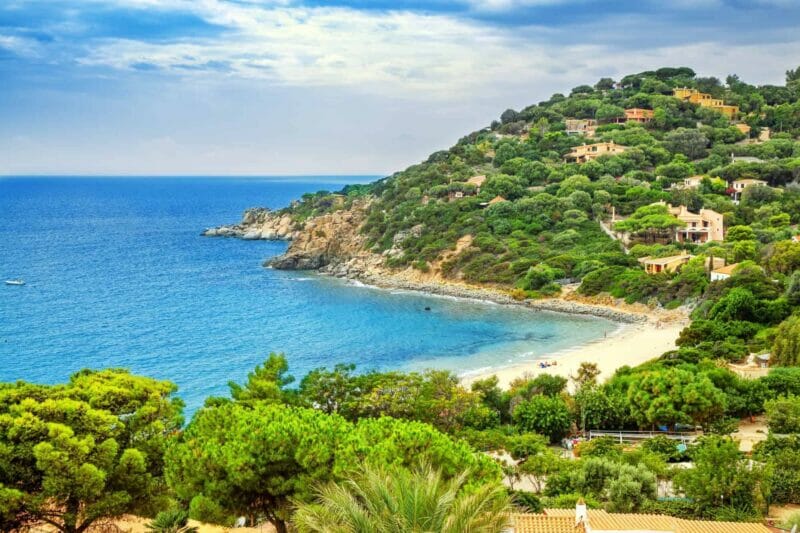
If you need any more convincing, ask the locals.
There are roughly 25 centenarians for every 100,000 people living in Sardinia.
While the exact reason for this is uncertain, many believe it’s due to the local diet, healthy climate, and lifestyle. Why not see what it can do for you?
There isn’t an abundance of expats living in Sardinia, so you’ll be able to soak up the local culture.
Property is affordable, even in some of the more popular areas.
The cost of living is generally cheaper than in the UK and USA, and the weather is much nicer year-round – it might not be a tropical paradise, but it’s certainly much milder than any northern winter. Sardinia is actually one of the 5 European locations that have nice weather all year round.
So, if the Italian version of island life sounds good to you, Sardinia is certainly a choice to consider for expats.
Is it expensive to live in Sardinia?
The cost of living in Sardinia, for the most part, is cheaper than in the UK, USA, or Northern Europe, and the average house price is lower as well.
In fact, it’s actually one of the cheapest regions in Italy.
Given its proximity to the mainland, getting anything you need is easy – appliances, clothing, food.
Much of the food available on the island is freshly grown and produced in Sardinia, making it both cheap and organic.
A bottle of local wine will cost you between €2 and € 4, and you can expect to pay roughly €4.50 to €15 for a pizza at a local restaurant, depending on the toppings and where it’s located.
Plus, everyday items are very affordable: a liter of high-quality fresh milk costs €0.75 – €1.45, and half a kg of pasta will cost around €0.70.
Cinema tickets cost between €4 and €7, depending on the location.
Getting to Sardinia is easy, with three different airports on the island.
Many budget airlines operate flights on a regular basis direct to Sardinia from mainland Europe and the UK.
Whilst Sardinia offers everything you need easily, certain things come at a slightly higher cost due to the reality of island life.
Certain items that must be imported from the mainland come with an extra cost. Commodities, like petrol, tend to cost more in Sardinia than they do on the mainland.
Is Sardinia a good place to retire?
Sardinia is an excellent place to consider for your retirement.
The laid-back lifestyle, beautiful setting, food, and culture make the island of Sardinia a great place to spend your golden years.
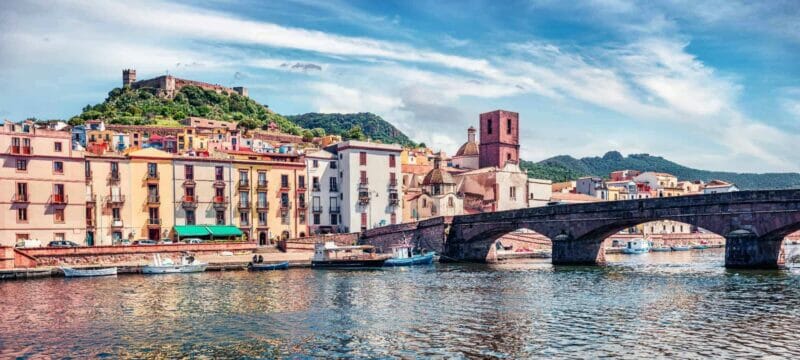
If walking along pristine beaches, touring the stunning countryside, visiting some of the oldest archaeological sites on earth, eating locally grown produce, and drinking local wine sounds in any way appealing to you (it certainly sounds appealing to us), then perhaps retirement in Sardinia might be good for you.
The Sardinian lifestyle lends itself to those in their later years.
Even in the tourist areas, outside of peak season, streets are often quiet after 8 pm, with restaurants and bars closing earlier in the evening.
People here prefer to spend their time with family and friends at home.
Good local food and good local wine are the heart and soul of life in Sardinia, enjoyed in comfort.
The landscape lends itself to those who want to relax as well – plenty to explore.
On the topic of time spent, Sardinia is rich in historical sites and museums that you can spend your time exploring. Plus, a great selection of local and world-class restaurants is available for you to sample.
Furthermore, the mild climate will make for a very comfortable existence.
Temperatures average 10 degrees Celsius in January and February and 24-25 degrees Celsius in July and August.
For many northerners, it is good news; grim winters and non-existent summers will be a thing of the past!
There is an excellent public transport system in place that can get you around the island, and an efficient public health care system is available.
Saving the best till last, some overseas pensioners can qualify for a tax rate of just 7% of all overseas income when moving to southern Italy.
- Italian Taxes & Tax Advantages For Expats Explained – all about Italian taxes applicable to expats, plus how you can benefit from the Italian flat-rate tax of 7%, Italian non-dom tax or Italian tax relief for expat workers.
Do they speak English in Sardinia?
English is spoken and understood in Sardinia. However, it is certainly recommended you learn basic Italian.
In tourist areas, English is more common, but once you move outside of these areas, it is less so.
Everyday tasks and general life will be made easier with some basic Italian language skills, and a few Sardinian phrases (the local dialect) will go a long way.
Immerse yourself in the culture as much as possible and learn as much of the language as you can.
The pros and cons of living in Sardinia
Any paradise has its downsides, and Sardinia is no exception.
The cons of living in Sardinia
1. Red tape
The Italian legal system is notoriously complicated.
Laws are constantly changing, sometimes in such a way that even the locals can’t keep up with them.
This can be especially tricky when it comes to tax.
You will need an accountant as there isn’t an automated system for things such as returns.
Things are done a certain way here, and that is ‘how it is’. This can be frustrating for newcomers, so patience really is key.
2. Jobs are hard to come by
Permanent work is hard to come by, especially for those who cannot speak the language.
Seasonal tourist work is available in tourist areas.
It is recommended that, if you are choosing to settle here, you have a sustainable income or pension.
3. Extra costs
Certain items are more expensive than on the mainland – mainly petrol and electricity.
Also, your residence status can sometimes incur extra costs.
Living in Sardinia as a non-resident (basically, staying there for less than three months at a time every six months) can incur extra costs on a bank account and electricity, and it is more difficult to purchase a car.
If you are granted residency, it will help avoid some of these costs.
However, staying over 183 days a year makes you a tax resident in Italy, and you will be charged tax on your worldwide assets and income.
You can learn about getting residency in Sardinia in our Living In Italy guide in the Residency section.
The pros of living in Sardinia
1. The setting
Sardina is beautiful. There is an abundance of stunning beaches, beautiful mountains, and forests, as well as a deep history with many fascinating archaeological sites.
There is 2000km of coastline, plus many coves and bays.
Many activities such as golf, sailing, cycling, kayaking, and hiking – even mushroom foraging – are all prevalent on the island.
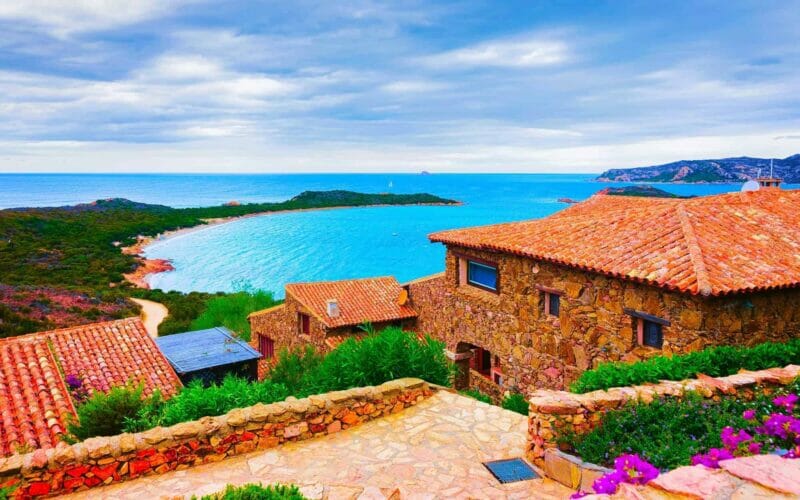
The scenery itself is enough to attract visitors from around the globe every year.
Combining this with a comfortable climate and laid-back lifestyle, Sardinia is an excellent corner of the world to relax and unwind.
2. The cost of living
In most instances, you will find that the cost of living in Sardinia is cheaper than in your home country.
Everyday items tend to not only be cheaper but are often fresher (especially when grown on the island).
Property is also more affordable.
3. Longevity
Sardinia is renowned for its senior citizens.
A combination of the local diet, surroundings, and lifestyle all contribute to one of the largest densities of centenarians on earth.
Why not see what life here can do for you?
Sardinia also has an excellent public healthcare system to support you in your golden years.
4. Culture
The festival variety is simply amazing.
There is a different festival on offer nearly every weekend somewhere on the island to suit every taste and interest.
The Jazz scene in Sardinia is of particularly high quality.
Outside of the regular festivities, you have the everyday traditional Sardinian culture that you will no doubt want to immerse yourself in.
Simply put – good wine, good food, good times!
5. Good connections and transport
Getting to and around Sardinia is easy.
There are three separate airports located on the island – Olbia, Alghero, and Cagliari.
There is also a good public transport system to get you around the island.
Plus, there are fast ferries to mainland Italy, France, and Spain.
6. Rich history
As one of the oldest land masses in Europe, Sardinia has a deep and rich history for you to explore.
There are countless medieval villages, thousands of archaeological and megalithic sites, Phoenician and Roman cities, more than a hundred coastal towers, and more museums than there are time.
You’re spoiled for choice in Sardinia; exploring its history is just the start.

Expats in Sardinia
There are plenty of expats living throughout Sardinia.
There are public groups on Facebook that you are welcome to join and meet fellow expats.
They do not tend to live in large areas or gated communities but rather are interspersed throughout the island and mingle with the local residents and culture.
Popular locations include Olbia, Cagliari, and Gallura.
Where is the best place to live in Sardinia?
The best to live in Sardinia is entirely dependent on the lifestyle you hope to lead whilst living there.
Outside of the two major cities, Olbia and Cagliari, which will be covered below, here are some other locations to consider:
Santa Margherita di Pula
Located in southern Sardinia near the capital city, Cagliari, this is an excellent spot for those who want to live by the sea. It is popular with tourists, so expect an influx of people in high season.
Cabras
For those looking for a quieter seaside escape, the commune of Cabras is an excellent choice.
Not too far away from civilization, you can get everything you need, along with some peace and quiet.
This village is located in the province of Oristano. It’s advised to have a car whilst living here for easy access to nearby locations.
Oresei
This village is an excellent all-rounder. Here, you’ll find a historic town center with many vineyards and orchards nearby.
It’s all home to many festivals and historical sites, but most importantly, it’s home to white-sand beaches with crystal clear water. Simply beautiful.
Living in Olbia, Sardinia
Olbia is a beautiful city, ranked the sixth-best place to live in Italy. It is a network of brightly colored buildings filled with small shops, piazzas, restaurants, bars, and clubs, all leading to the seaside.
Olbia is a large city, so life here is very relaxed, but given its size, it doesn’t feel like a village.
Here, you’ll experience the feeling of a city without the massive hustle and bustle. Living here is very affordable, with houses and regular items all available at a reasonable price.
Plus, the airport is very near to the city, giving easy access to mainland Italy and wider Europe.
Living in Cagliari, Sardinia
Cagliari is Sardinia’s capital and also the largest city on the island.
The history of the city is very deep, with the earliest settlements in the city dating back to almost 5000 years ago.
It’s also home to a Roman amphitheater, ancient burial chambers, and many other historical and archaeological sites, as well as museums and galleries.

Outside of this history, which you can lose yourself in, the city offers anything you might want from a big city without the terrible traffic and pollution.
Cagliari is also home to a variety of bars, quality restaurants, and a vibrant cultural scene, including jazz clubs and multiple festivals.
One of the largest and most popular is the parade of Sant’efisio, celebrating the warrior martyr patron of Sardinia.
The city is located on the sea and is up to an hour away from some of the best beaches on the island.
Frequent buses and excellent health care are also available here.
Housing here is slightly more expensive than in other parts of the island. However, that is to be expected in a bigger city.
There are also cinemas and a theatre, and the local football team always draws a crowd of passionate supporters. You can live comfortably here on a budget.
The city is also very well connected, with excellent ferry services from the harbor and great connections from the airport.
It is popular with tourists and is visited by cruise ships, so there can be an influx of people in high season.
Living in Sardinia – summary
Sardinia offers expats a wide variety of lifestyle choices.
Whether it’s smaller villages, big or small cities, or perhaps even the more luxurious tourist spots, Sardinia has something for everyone.
So, if you’ve dreamed of immersing yourself in the local culture, escaping the winter and the rat race for sunny beaches and idyllic countryside, perhaps Sardinia is the place for you.
Other popular locations in Italy:
- The 13 Best Places To Live In Milan, Italy
- Living In Verona, Italy: What To Ask Before You Move
- Living In Como, Italy: Essential Expat Guide
- Living In Rome: The Pros & Cons You Must Know
You might find useful:
- Living In Italy – The Expats’ Essential Guide
- The Best Places To Live In Italy For Expats
- Didn’t find what you were looking for or need further advice? Comment with your question below, and we will do our best to help.
Helpful external links:
- Sardinia, the first identified blue zone region in the world – Blue Zones
- Getting around Sardinia – check the site http://www.sardegnamobilita.it/ for timetables, travel times, and connections.
- Hospitals in Sardinia – Sardegna Salute.

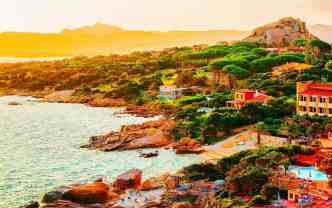
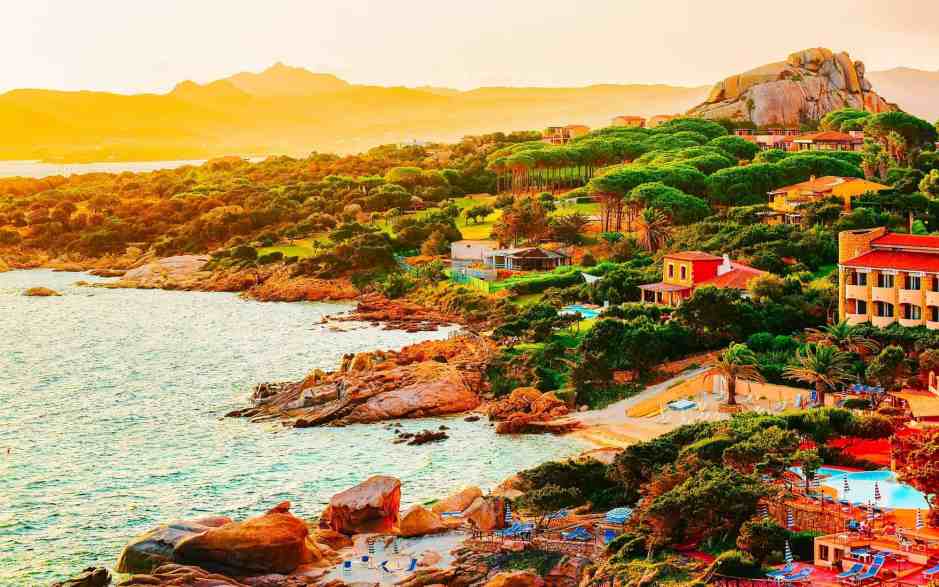
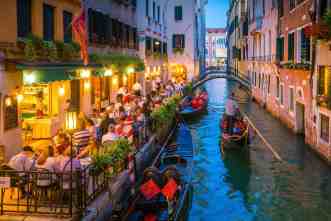

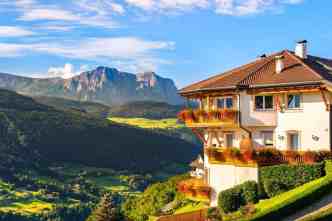
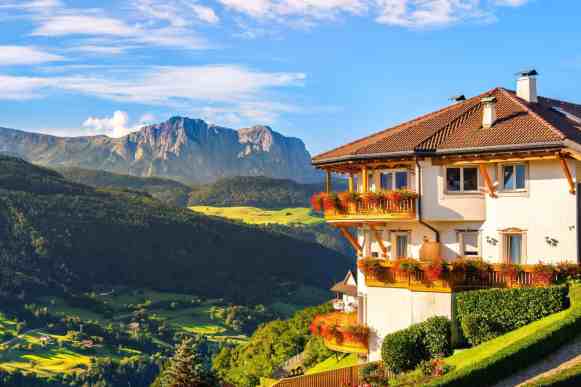
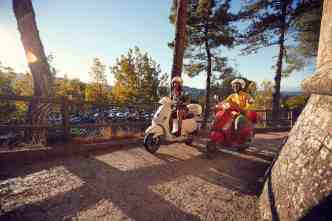


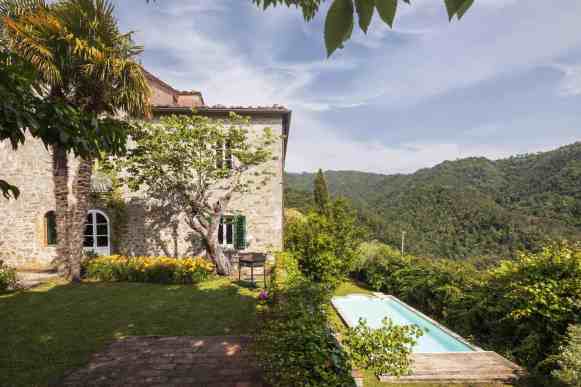


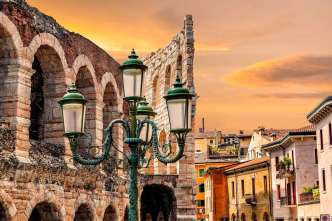
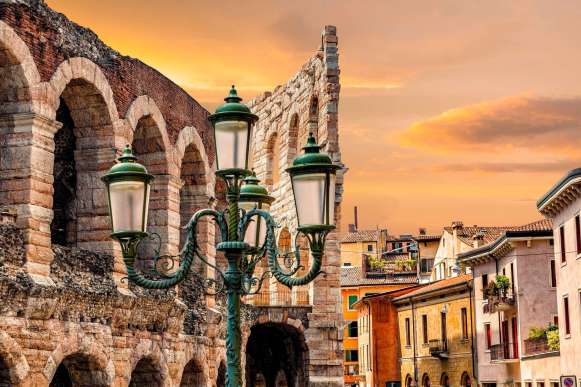
Hello My husband and I are planing to retire it Italy next winter. He had his Italian dual citizenship. We are thinking of renting for a while before we purchase something. Can you give me advise on average rentals /and small homes( need a garden) or do you have a realtor.We Love Sardinia!
we will most likely visit in September to look at places.
Thank you Kindly
Sally Catalana
Hi Sally, what a beautiful choice. The best way to find long-term rental accommodations that suit you well is to do it while in Sardinia through a local estate agent. You probably already researched and discovered online lettings are mostly holiday villas, apartments, and room shares.
Another way is to join Facebook groups such as Sardinia Expats, Sardinia Community, and Sardinia in English and ask for recommendations.
Good luck
What is a good newsletter to subscribe to?
Hi Brett, unfortunately, I cannot recommend any decent newsletter on Sardinia, however, you might want to try the Strictly Sardinia blog – very refreshing and new posts are published regularly.
Hi I am planning to retire in Sardinia I am 70 years old and have a 1000.00 usd per month coming in. Is that enough money to live on? Thank you George ps I plan on Ancestry for citizenship.
Hi George, unfortunately, the minimum income requirement for an elective residence visa is very high. You can find more info here: https://expatra.com/guides/italy/living-in-italy-the-expats-guide/.
I am going to ask our contributor and European expert Tom Julian to comment on the Ancestry for citizenship route, he knows a lot about it.
@George P Giacoia,
Hey George,
Thanks for reading our article and contributing to our knowledge base.
As far as any income requirement for the citizenship by descent process, there isn’t any. It doesn’t matter how much you make, only you need to be able to pay for your daily life if you plan on applying in Italy.
You can apply and conduct the process through one of the Italian consulates in the United States, but just know that will take years to complete.
If you want to apply in Italy, that process normally only takes 3-9 months to complete. It all depends upon which comune you apply in and the specifics of your case.
But as far as income, there is no income requirement for that process and once you start the process you’ll be permitted to stay in Italy for as long as the process takes.
I am currently involved in a couple of projects about this issue. We may even be publishing some guides here on Expatra as so many US and UK citizens have roots in mainland Europe that citizenship by descent makes a viable and effective alternative to long-term visas or residency visas.
So, stay tuned for any announcements!
Hope that helps George, and FYI, I offer online consultations, so if you would be interested in that, just email me globaltalon1@gmail.com and I can tell you more about that option as well.
Thanks again George for your comment, questions, and contributions.
Julian – Global Talon
Explore, Experience & Engage
Hello, I am considering sending my child to The Chatterbox International school of Cagliari from next year. Any comment on the school please?
Hi Alessandro, 100000 euro for Sardinia seaside is a bit tight but not impossible. You can look in the outskirts of Cagliari (some areas are really close to the beach) or Sant’Antioco-Carloforte area. Near Oristano could be another option. I work for Hexedes Group, an international relocation and real estate company and we offer a property finder service to expats, so I can help you to find a suitable home. Feel free to reach out at desiree.l@hexedes.com.
I am born in Italy and my wife of 26 years is also a citizen. I live in South Africa for the last 45 years and now that the kids are big and educated we are considering moving to Sardegna. I have a private pension and we are mid 50’s. Where can I find a nice small home at the sea with a budget of 100 000 Euro max?
Grazie Mille
I’m a 62 y/o semi-retired teacher, living on my SS and p/t income from online tutoring. I lived in Hawaii for 5 years while teaching f/t (until 2020, I returned to the mainland when my son-in-law beat cancer and he just got a kidney transplant a few weeks ago!). My plan is to save up for another 3 years, then move to Italy. I’m really missing the warm beaches of Hawaii!
I have 2 questions: 1) Is there good enough internet for me to continue my p/t tutoring? I realize the time difference to the east coast where my students are would be an issue, but not a dealbreaker for me.
2) Approximately how expensive is it to rent a very small place in Sardinia? I’m happy with a very small space.
Grazie!
Lauralee
Hi Lauralee,
It is possible to have a high-speed internet connection close to main Sardinian cities. You can check the locations, providers and speed here: https://testmyinternetspeed.org/isp/ita/it88/
As to the rental prices, it’s possible to find a studio in the Sassari area, for example, for about €350 a month. The problem is that there are not many options, so the choice is pretty limited.
Sardinia is stunning, even for Italy, which has spoils of natural beauty. A con for retiring in Italy as a foreigner is definitely the way the legal system is structured (or unstructured, lol)! And that includes taxation. Not a deal breaker though.
I lived in retirement for close to a decade on the Amalfi Coast in Salerno. There was a time before the formation of the E.U. and ever-escalating tourism where the cost of living (and all around vibe) was an absolute bargain. I don’t know if this is true any longer, but back then, Sardinia was under the radar. Not many expats, not even that much tourism compared to the rest of the country. And it’s a gem.
Thank you, Jimb, for contributing. It’s brilliant when experienced expats share their thoughts and advice.
Hi Jack, great article to summarise living in Sardinia.
Do you have any articles or know of places where one can research its livibility for young expat families? I’m an Australian with an Italian wife, searching for an area of Italy that can match the laid back lifestyle, weather and vicinity to the beach of east coast Australia.
Information such as quality of life for young families, ease of meeting other young expat families, schools, safety, areas that are family focused, hospitals/healthcare, pedestrian friendly streets – all these are considerations yet no site I can find really touches on most of these items.
Hi James, happy to help, I lived 12 years in Sydney and my holiday home is in Sardinia so I know what you mean! I think Cagliari could be a good fit for a young family, the biggest Sardinian city but still relatively small (150,000 people). In Cagliari you can find a number of international schools, an international airport, laid back atmosphere, great food, it is very safe and child friendly. Weather is great all year round, a bit colder than Australia east coast in winter (but a lot of sunny days) and steady and warm in summer. The city beach of Poetto is beautiful and you will have an array of other amazing beaches only a few kilometers away. I work for Hexedes Group, an international relocation company, feel free to reach out should you need further information or assistance and I will be happy to help! (desiree.l@hedexes.com)
This was incredibly helpful
And alluring. Are older expats welcomed there ?
Sardinia is very friendly. Around 10% of the whole population is foreigners, many of them are older expats, either retired or semi-retired. The climate and lifestyle all contribute to people living long healthy lives, this is why the island has the largest population over 100 years old in the world!